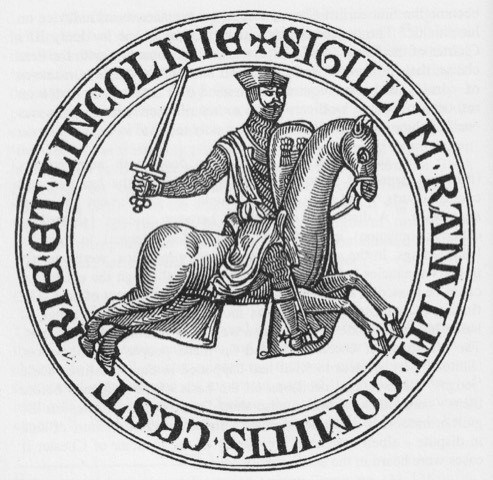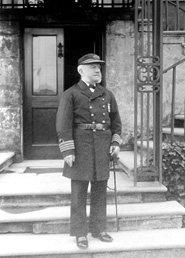

It is highly likely that Thelwall had been an estate held by some powerful Saxon local leader before the Norman Invasion but no records are known nor did they appear to use the term 'Lords of the Manor'. After the Conquest, we can trace the names of Thelwall's owners.
'Lord of a Manor' was a job description, not a title. It carried the right and obligation to conduct manorial courts to control the occupants of the township. Manorial courts sorted out local squabbles over land, property maintenance, personal behaviour and so on. Since the Lord of the Manor probably owned the house and land that a person occupied, the courts' powers ranged from fines to eviction from the village. In Thelwall in the 1740s, a troublesome man, his wife and children were thrown out of their house and off his farmland. They had to leave Thelwall. Where they went was their problem; the house and land were let to others. All this happened in one day; there was no 'complaints procedure'.
From about 1070 until 1237-1241, a series of seven earls of Chester had ultimate power over Cheshire, not the King. As an example of the earl's power, Magna Carta did not apply to Cheshire. Instead, Earl Ranulf de Blondeville (builder of Beeston Castle) issued his own charter and gave away much less than King John was forced to do in England. In the 1200s the Crown took control over Cheshire. By then, the ownership of Thelwall had filtered down through the ranks.
Seal of Ranulf de Blondeville, Earl of Chester
The post-Conquest owners-list runs as follows:
The Earls of Chester You did not cross these men; best avoided. Lacys, Constables of Cheshire The Earls' right hand men; tough, stayed close to the Earls, especially when fighting in France or Wales or on crusade. Dutton family of Dutton, had reputations as good stewards who could run estates on behalf of absentee landlords. The Duttons might have had a house in Thelwall or else ruled from Dutton. The Clayton family, related to the Duttons; mainly a Lancashire family. Brooke family were buying land in Thelwall from about 1580. Lived in the village and sold the estate around 1620. Moore family of Liverpool, held Thelwall for two generations; fled during the Civil War, sold out in 1661 to the Pickerings.
And so came the Pickerings.
They were a widely-spread family of barristers, the most famous of whom was Sir Gilbert Pickering who supported Parliament in the Civil War and was appointed to the judges' bench that tried King Charles 1. However, at the Restoration, Gilbert was not executed because he had not signed the King's death warrant-a fortunate omission: six others were hung! Thelwall's Pickerings came from a distant branch but all used the rampant blue lion charge. Thelwall's pub still does!
Robert Pickering (1619-1685) Barrister, Grays Inn, paid £6500 (~£7M in 2017) for Thelwall estate and manor; dubious financial reputation.
John Pickering (1645-1703) Son. Aftermath of Father's financial deals led to his imprisonment for debt in the Fleet prison, London.
John Pickering (1674-1747) Son. Could not juggle his debts, imprisoned like his father.
Note-Thelwall still has the nickname 'Debtor's Retreat'
Thomas Pickering (1700-1776) Son. Tough industrialist, settled estate debts at huge discount, then blew all his wealth by marrying a young lady when he was 75. Built the new Thelwall Hall (1756).
Henry Pickering (1756-1820) Nephew. Absentee landlord, industrialist, lived Bath, leased the Hall to Thomas Blackburne of Orford, owned a lighthouse (really!)
Thomas A Pickering (1755-1837) Sad, distant relative. Lawyer, he was lost once his wife died (1822); he died when he was about to be declared bankrupt and expelled from the Law Society. Bequeathed the estate to the Nicholsons.
William Nicholson (1816-1888) Warrington solicitor; left Thelwall c.1845.


(William and Constance Nicholson).
James Nicholson (1818-1889) Warrington solicitor, lived at Thelwall Hall until death.
John Parry Jones- Parry (1829-1920) Brother-in Law to James Nicholson. Rear Admiral, Royal Navy, fought in the Crimea. Thelwall's last Manorial Lord.
